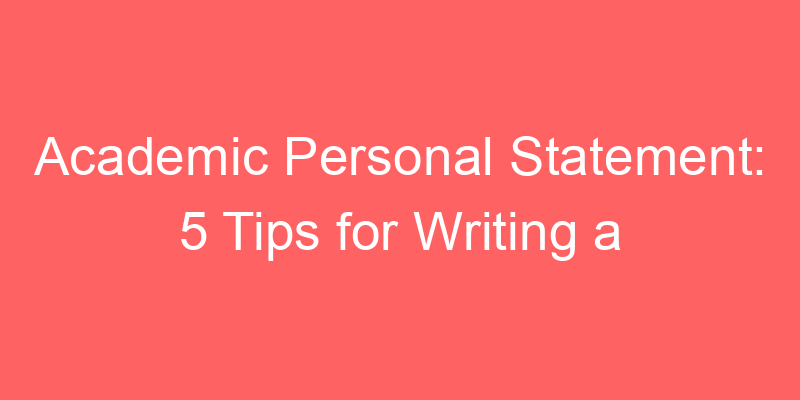Career Academic Personal Statement for Job Search Success
Crafting a Compelling Career Academic Personal Statement
When embarking on a job search, your career academic personal statement serves as a pivotal tool to showcase your unique blend of academic achievements and professional aspirations. This statement, often featured prominently in resumes and cover letters, encapsulates your career trajectory and future goals succinctly. Aim for clarity and specificity, highlighting how your academic journey aligns with your desired career path.
Examples of Effective Career Academic Personal Statements
Here are three examples to guide you in creating a powerful career academic personal statement:
- “A dedicated researcher with a passion for exploring the intersections of cognitive psychology and artificial intelligence. My academic pursuits have equipped me with robust analytical skills and a keen ability to innovate, making me an ideal candidate for roles in research and development.”
- “As a doctoral candidate in environmental science, I am committed to leveraging my expertise in sustainable practices to drive impactful change within the renewable energy sector. My research initiatives have not only broadened my knowledge but also honed my project management skills.”
- “An accomplished mathematician with a specialization in statistical modeling and data analysis. My academic endeavors have prepared me to tackle complex challenges in finance, where precision and strategic insights are paramount.”
Salary Guides and Negotiation Tips in Top 10 Countries
| Country | Salary Guide | Negotiation Tips |
|---|---|---|
| United States | $70,000 – $120,000 | Highlight specific academic achievements during negotiations. |
| United Kingdom | £40,000 – £80,000 | Research industry standards and cost of living indices for effective negotiation. |
| Canada | C$60,000 – C$100,000 | Emphasize skills gained through academic pursuits to justify salary expectations. |
| Australia | A$80,000 – A$130,000 | Be prepared to discuss academic projects that demonstrate practical application. |
| Germany | €50,000 – €90,000 | Highlight any academic awards or honors to strengthen negotiation position. |
Professional Development Resources
Investing in continuous professional development is crucial for enhancing your academic career prospects. Consider these resources:
- Online Courses: Platforms like Coursera and edX offer courses in advanced research methodologies and academic writing.
- Workshops: Participate in workshops focused on grant writing and academic publishing to refine your skills.
- Skill Development: Develop skills in data visualization and presentation through workshops offered by universities and professional organizations.
Conclusion
Your career academic personal statement should reflect your passion for your field of study and your commitment to professional growth. Use it as a tool to highlight your unique strengths and aspirations, setting you apart in your job search endeavors. By leveraging salary guides, negotiation tips, and professional development resources, you can navigate the academic job market with confidence and purpose.
Career Academic Personal Statement
Career Advice and Tips
Crafting a compelling career academic personal statement requires a blend of introspection and professional articulation. Begin by reflecting on your academic journey and how it aligns with your career aspirations. Highlight key achievements, experiences, and skills that distinguish you. Ensure your statement showcases your passion for academia and your unique contributions to the field. Incorporate keywords relevant to your area of expertise to enhance discoverability by potential employers.
Remember, your personal statement is not just a summary of your resume but a narrative that connects your academic background with your career goals. Tailor it for different applications, emphasizing specific skills and experiences relevant to each opportunity.
Resume Strategies
When applying for academic positions, your resume should emphasize your research accomplishments, teaching experience, and academic honors. Use a reverse-chronological format to highlight your academic journey, starting with your most recent achievements. Include sections such as publications, conferences attended, grants awarded, and teaching philosophy.
For example, if you’re applying for a tenure-track professorship in biology, your resume should detail your publications in reputable journals, grants secured for research projects, and successful mentoring of graduate students.
Provide Career Path Visualization
| Entry-Level | Mid-Level | Senior-Level | Executive-Level |
|---|---|---|---|
| Graduate Teaching Assistant | Assistant Professor | Associate Professor | Dean of Faculty |
| Research Assistant | Associate Professor | Department Chair | Provost |
Resume FAQs
- What should I include in an academic CV? Your academic CV should include sections such as education, research experience, publications, presentations, awards, and professional affiliations.
- How do I tailor my CV for different academic positions? Customize your CV by highlighting relevant research, teaching experience, and skills sought by the specific academic institution or department.
- Should I include a personal statement in my academic CV? Yes, a brief personal statement can provide insights into your academic interests, teaching philosophy, and career goals.
Layout Tips
Keep your academic CV clean and organized, with clear headings and bullet points for easy readability. Use a consistent format throughout, ensuring your most relevant achievements are prominently displayed. Consider using LaTeX templates for academic CVs to maintain a professional appearance.
Resume Checklist
- ✓ Include all relevant academic degrees and certifications.
- ✓ List publications, including journal articles, books, and conference papers.
- ✓ Highlight teaching experience, including courses taught and student feedback.
- ✓ Provide details of research projects, grants secured, and collaborations.
- ✓ Tailor your CV for each academic position by emphasizing relevant skills and experiences.
Keyword Tips
Optimize your academic CV with keywords specific to your field, such as research methodologies, academic disciplines, and technical skills. Incorporate keywords naturally throughout your CV to enhance visibility in academic job searches.
HR Insights
From an HR perspective, academic institutions look for candidates who not only possess strong research and teaching abilities but also demonstrate a commitment to academic integrity and institutional values. Highlight your contributions to academia and your potential impact on the institution in your personal statement and CV.
Generate Your NEXT Resume with AI
Accelerate your resume crafting with the AI Resume Builder. Create personalized resume summaries in seconds.




